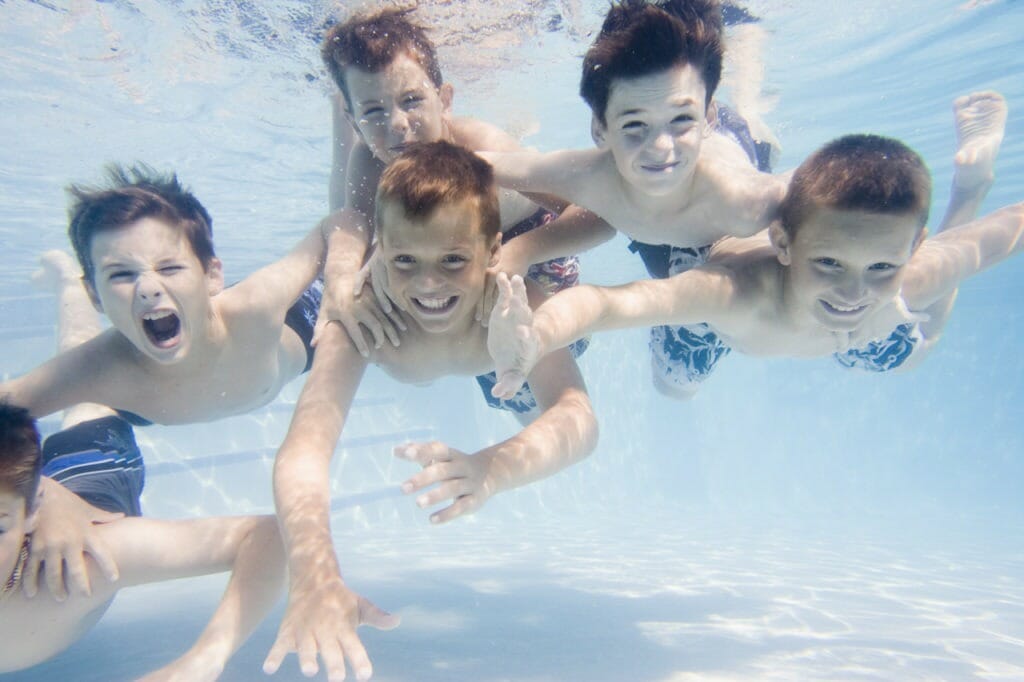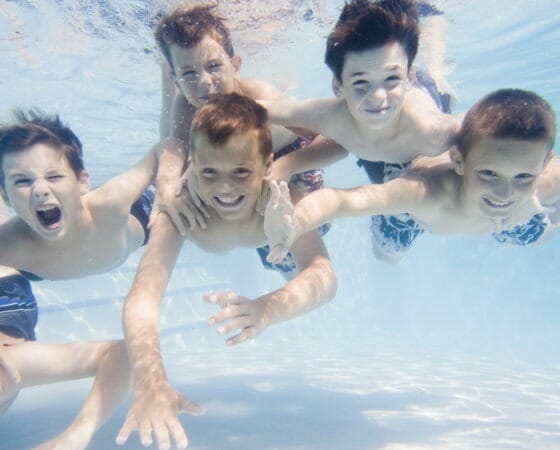Summer Is Here: Are You Ready for Allergies and Swimming Pools?

With summer upon us, parents everywhere are preparing for the many fun summer activities that come around every year, just as schools are letting out. This includes anticipating little things like allergies that may affect our children. It’s important for parents to educate themselves about how to best prepare their children for safe participation in common summer activities, including swimming in pools.
Swimming Pools and Pinkeye
Pinkeye is the common term for Conjunctivitis. While pinkeye causes no permanent vision damage, it can be very irritating for children. It causes the eyes to be inflamed and red, and usually causes itchiness. One common cause of pinkeye is chlorine in swimming pools.
Most cases of pinkeye are fairly mild and will dissipate on their own. However, it’s important to monitor your child in case any symptoms get worse. A small percentage of cases of pinkeye should be treated by a doctor. If, over the course of a few days, your child’s pinkeye is not improving and their eyes feel burning pain beyond just itchiness, then seek the advice of a medical professional as soon as possible.
Common Summer Eye Allergies
Like spring, summer can be a time for allergies. The most common cause of allergies tends to be pollen that’s naturally in the air. In the summer, some types of pollen like ragweed can travel hundreds of miles in the wind, and will irritate people in areas where ragweed doesn’t even grow. Allergic reactions to pollen can also cause pinkeye, or plain itchiness and irritation in the eye.
Most summer eye allergies are mild and can be treated with over-the-counter eyedrops. Again, it’s important to monitor any symptoms, and if the irritation does not dissipate or if it gets worse, it’s important to see a doctor. While not common, some people do have severe reactions to pollen.
Preventing Summer Eye Allergies
It might sound simple, but one of the best ways to prevent eye allergies or many other minor issues is to wash your hands throughout the day, and especially after any outdoor activity. Many children will get pollen or dirt on their hands, and then wipe their eyes — it’s a common habit we’ve all seen in kids. But this is a common way that both pollen and chlorine can get in your children’s eyes.
Teaching your children not to rub their eyes with dirty hands can go a long way in preventing the most common allergic reactions. Also, if you live in an area where air conditioning is used frequently, then having an HVAC specialist check on your air conditioning ducts is important. Broken or torn air conditioning ducts are the biggest cause of indoor air pollution, and can result in smog, pollen, and bacteria entering your home.
[Photo Via: Live at Villages]

